Swiss energy policy lacking urgency spark

The International Energy Agency (IEA) judges Switzerland’s energy policy as being on the right track but urged a faster pace of implementation.
An electricity agreement with the European Union (EU) would also strengthen the security of electricity supply in Switzerland and the EU.
The Swiss government and cantons must speed up the approval process for renewable energy generation plants and power grids, according to the latest IEA report on Switzerland, which was presented in Bern on Monday. The climate policy measures that will be effective from 2030 should also be defined as quickly as possible to best achieve the net zero emissions target by 2050.
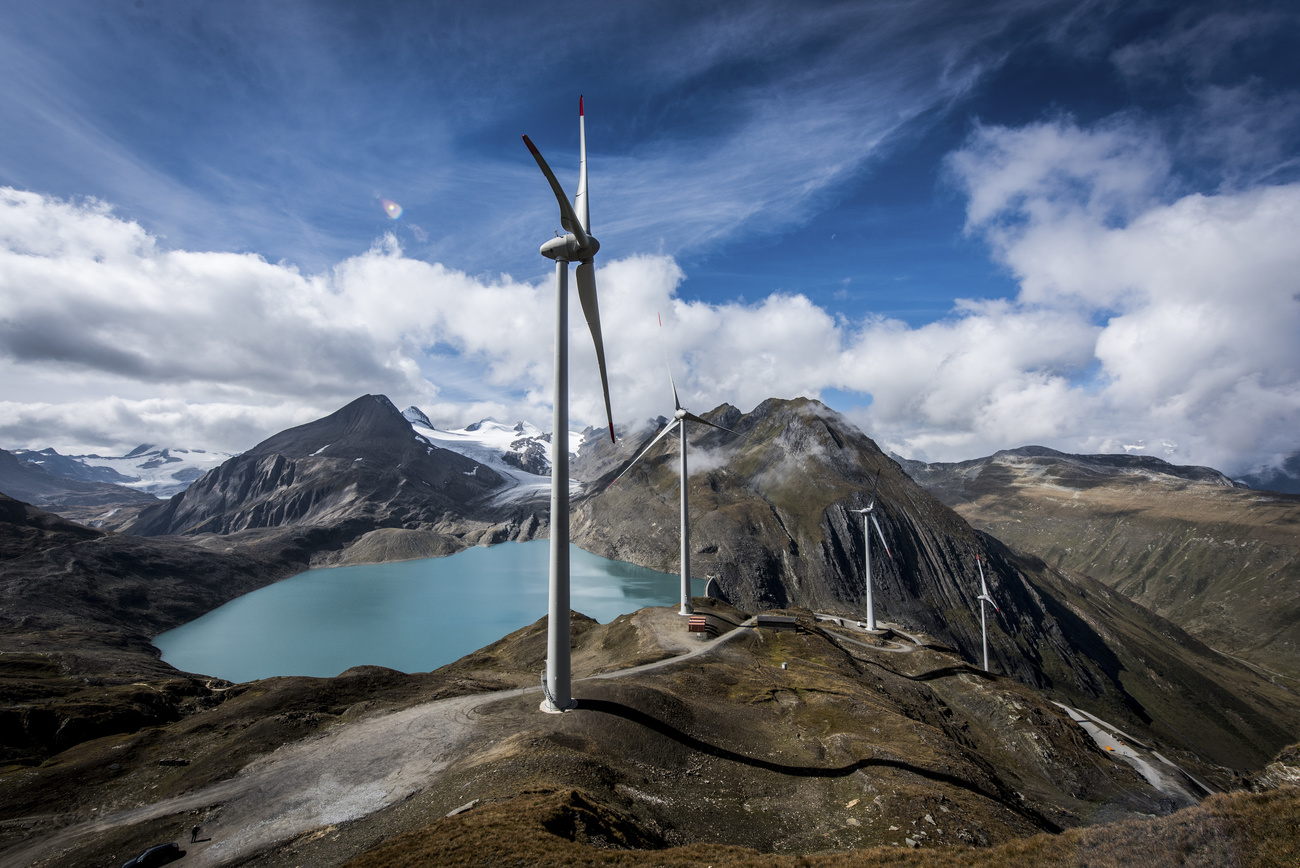
More
Government wants to speed up construction of renewable energy plants
According to the IEA, Switzerland could move faster by addressing three important bottlenecks with appropriate measures: a lack of qualified workers, to install heat pumps, for instance; a lengthy approval processes for renewable energy projects and inefficient supply chains for building materials and equipment for the energy sector.
The IEA welcomed measures that Switzerland has speedily implemented in in response to the global energy crisis, particularly the short-term shoring up of hydropower reserves and building new reserve power plants. The federal law on securing electricity supply with renewable energies, which is pending in parliament, has also been applauded.
Good marks are awarded for the solar and wind initiatives passed by parliament, which aim to swiftly complete Alpine solar power plants and wind turbines that are well advanced in the approval process. In addition, in June 2023, the Federal Council submitted to parliament a proposal to accelerate the planning approval process.
The IEA recommends that Switzerland align its electricity market regulations with those of the EU and conclude an electricity agreement. This would result in lower costs for Swiss consumers from services in the transmission network and strengthen both the security of electricity supply in Switzerland and among EU member states.
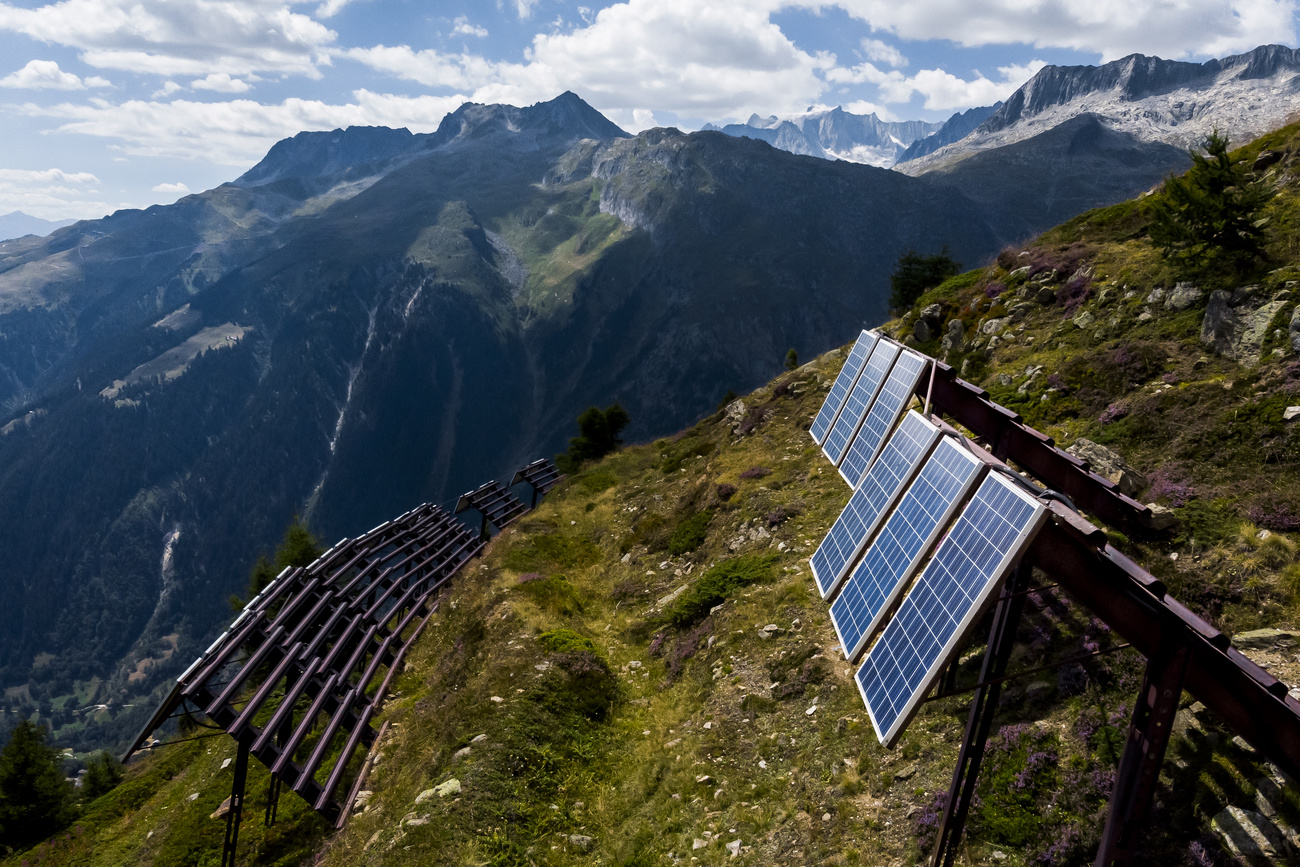
More
Swiss voters to get their say on Alpine solar parks
To ensure its gas supply, Switzerland needs a regulatory authority and a coordinating network company, the IEA states. The IEA also recommends that the federal government formulates national strategies for hydrogen, e-fuels and other renewable gases and examine what role these could play in sectors that are difficult to decarbonise. With this preparation, Switzerland could consider a later agreement on gas and hydrogen with the EU.
In nuclear energy, the IEA warns of a loss in know-how. Switzerland’s gradual exit from nuclear power makes the sector unattractive for young skilled workers. This could have a negative impact on the long-term operation of existing nuclear power plants and Switzerland’s other nuclear activities.
Qualified workers are also needed for decommissioning, waste disposal and storage. The IEA recommends that Switzerland deepens cooperation with local communities near to geothermal projects.
The IEA reviews the energy policies of member states every five years. For the latest in-depth review, an international review team visited Switzerland from November 22 to 28, 2022, resulting in a 130-page report.
This news story has been written and carefully fact-checked by an external editorial team. At SWI swissinfo.ch we select the most relevant news for an international audience and use automatic translation tools such as DeepL to translate it into English. Providing you with automatically translated news gives us the time to write more in-depth articles. You can find them here.
If you want to know more about how we work, have a look here, and if you have feedback on this news story please write to english@swissinfo.ch.

In compliance with the JTI standards
More: SWI swissinfo.ch certified by the Journalism Trust Initiative










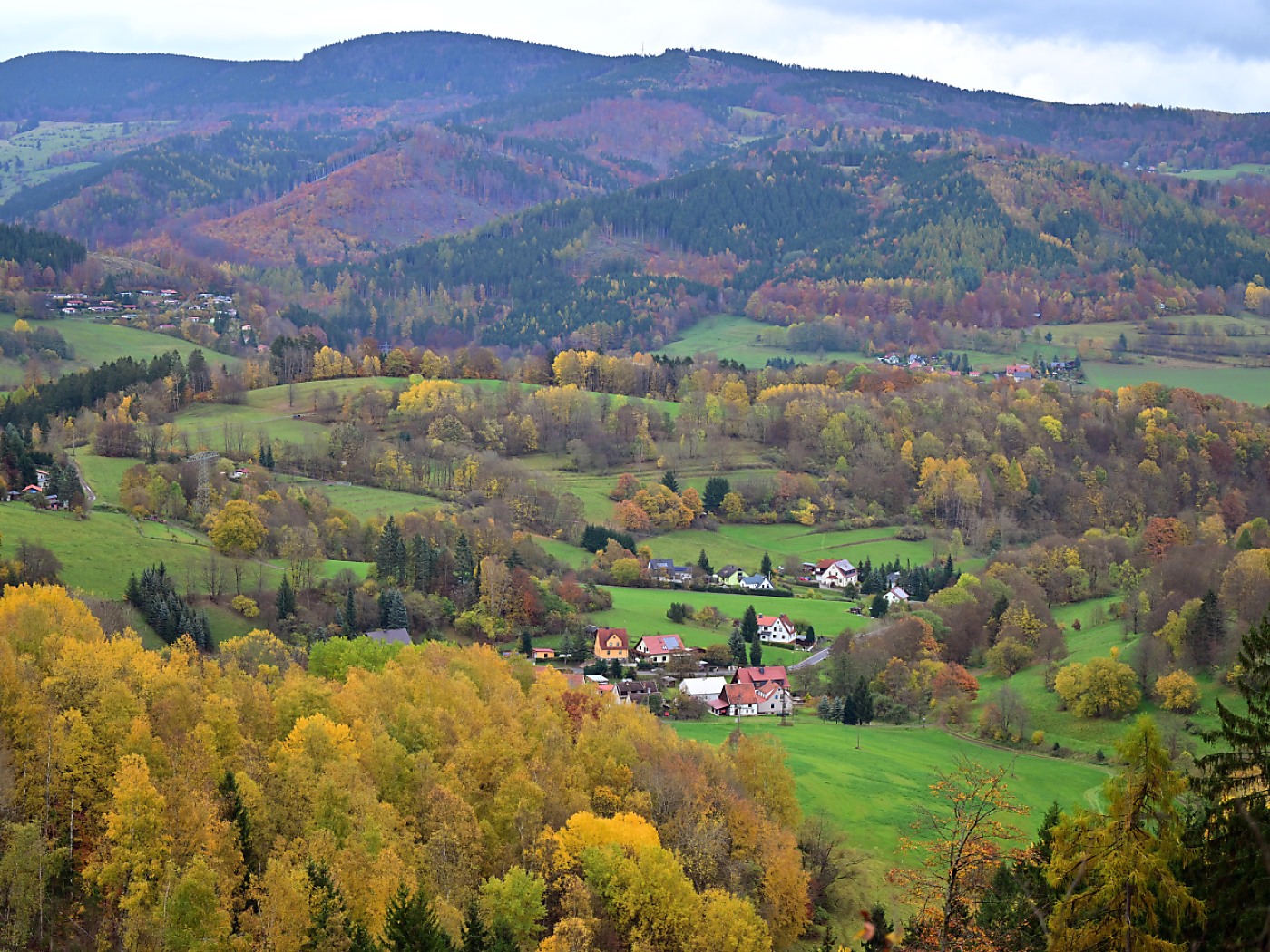
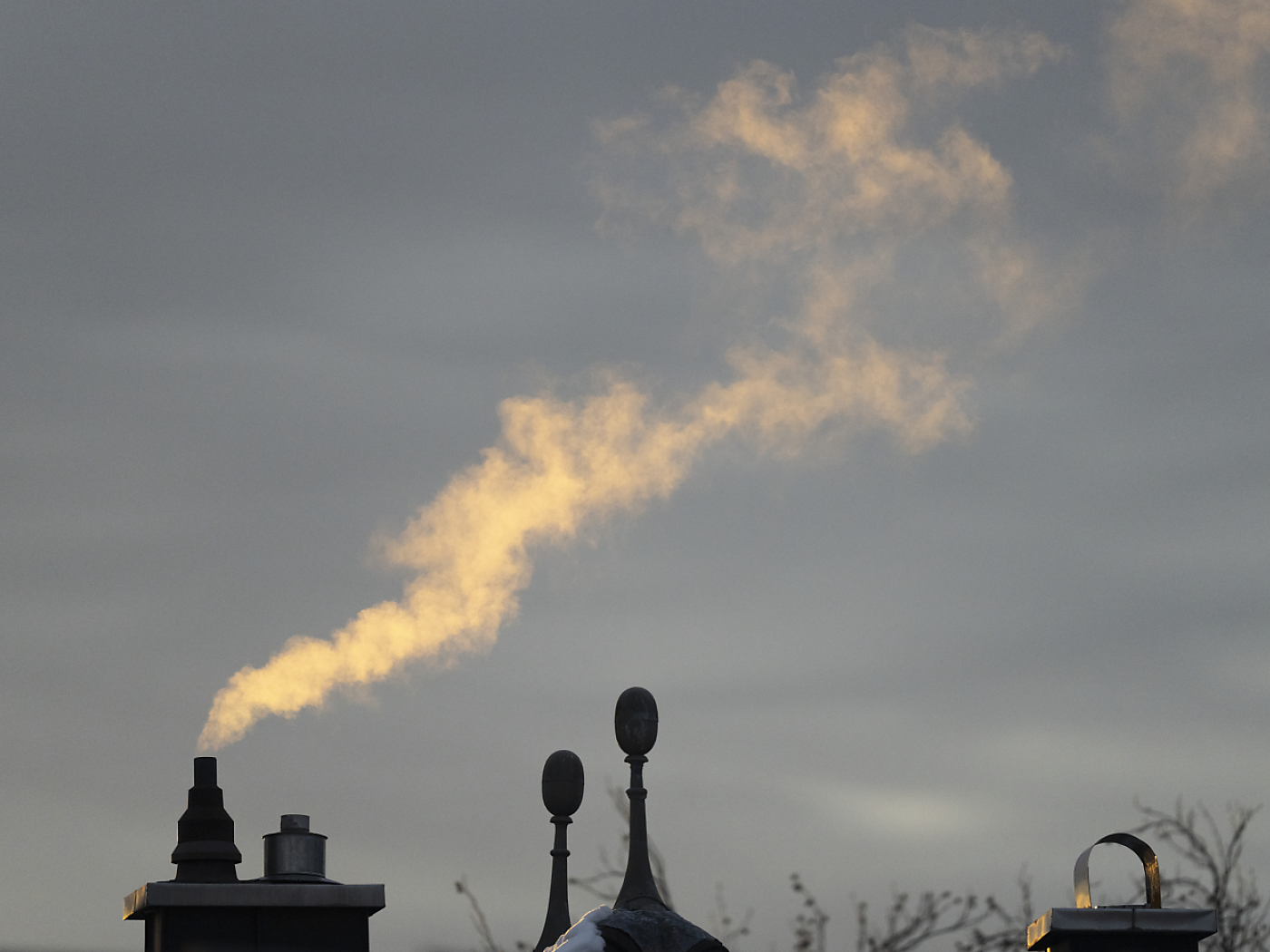



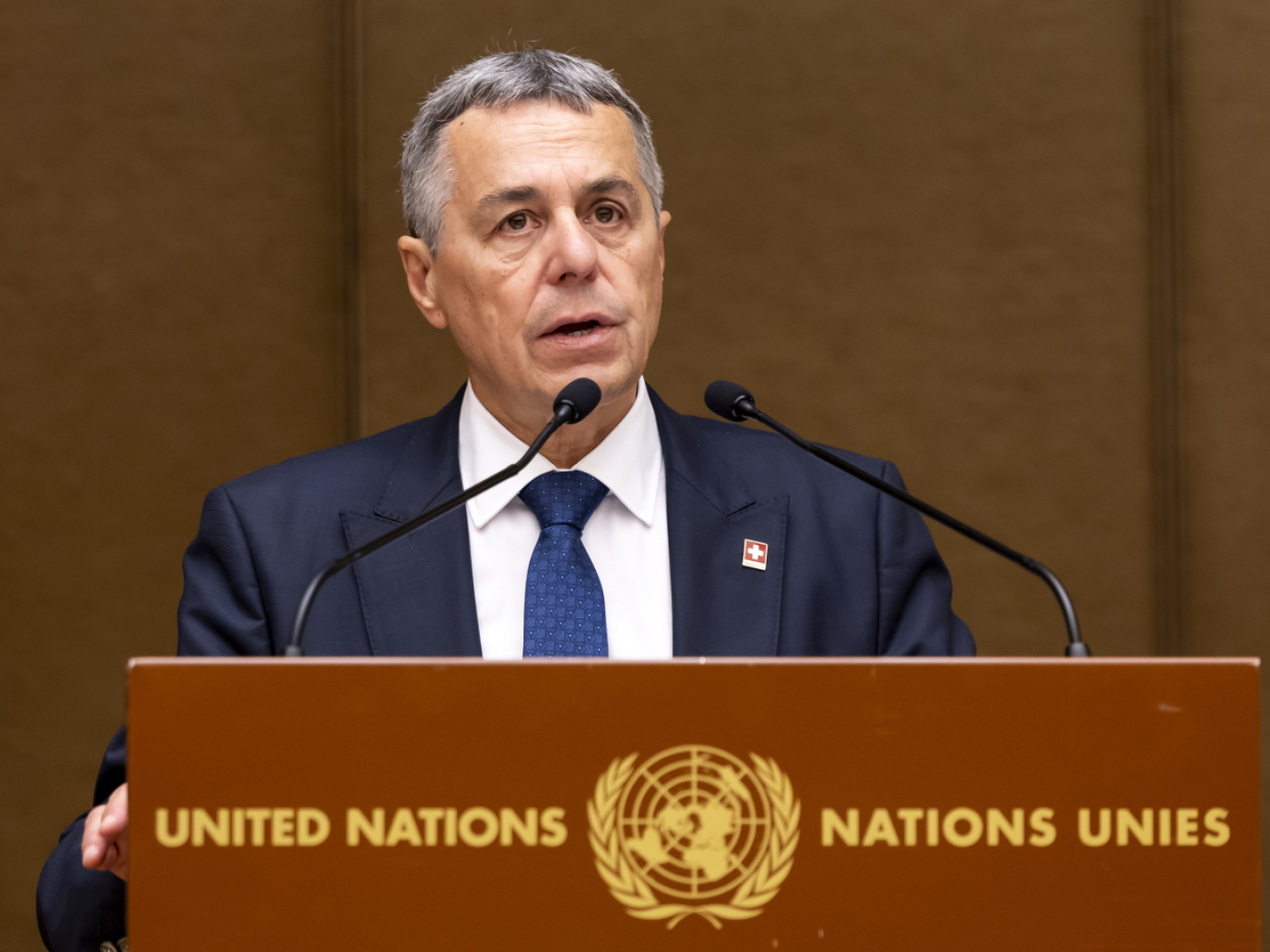


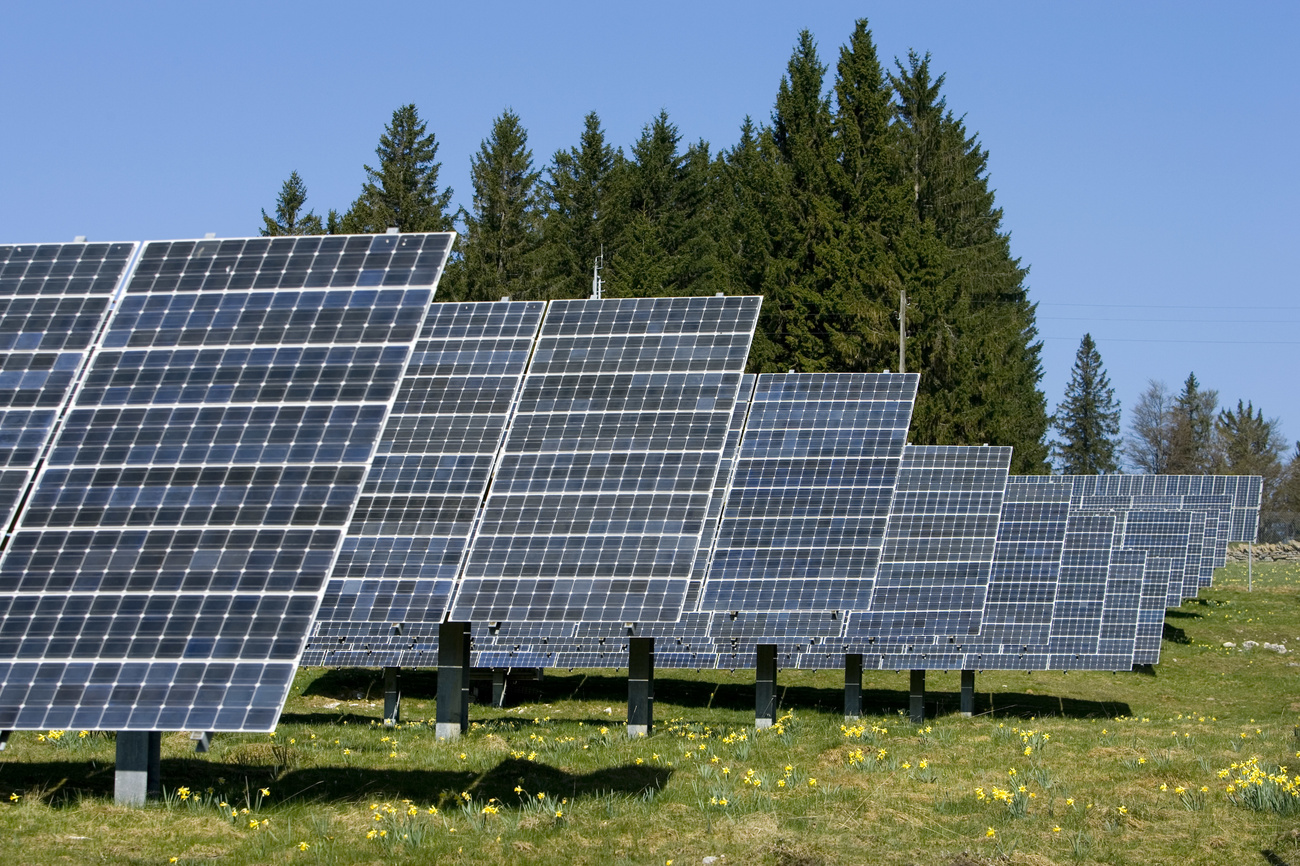
You can find an overview of ongoing debates with our journalists here . Please join us!
If you want to start a conversation about a topic raised in this article or want to report factual errors, email us at english@swissinfo.ch.